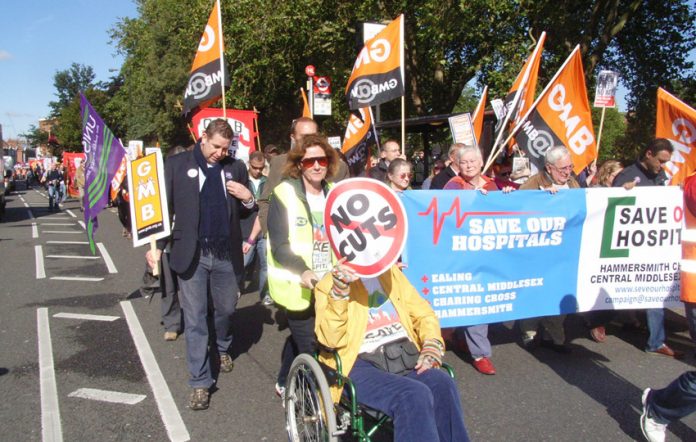
THE local community, backed by Unison, has launched a campaign to stop the privatisation of the patient transport service (PTS) within Greater Manchester.
At a public meeting at Manchester Town Hall tonight, Labour’s Shadow Health Minister, Andrew Gwynne MP, will join campaigners to set out the next phase in the battle to keep this vital service in public hands.
A Unison statement said: ‘The contract is up for tender, and the preferred bidder is currently the Arriva Bus Company, based purely on cost as the in-house service performed better on quality.
‘We are concerned that this move is going to affect the service as the private company starts to try and make profit by cutting corners.
‘The service is provided currently by 375 staff directly employed by the NHS.
‘The service provides non-urgent transport to and from hospital appointments for those with real medical needs. North West Ambulance Service undertakes over 2.3 million journeys every year.
‘The service is also part of the resilience plan for emergency situations within the Greater Manchester area which is defined as a high risk area by Central Government.’
Angela Rayner, of Unison, said: ‘It is a disgrace that the winning bidder was not the provider with the highest standards, just the lowest cost.
‘We know that privatisation is deeply unpopular with the public. Recent high profile privatisation failings have revealed just how badly things can go wrong – we don’t want patients in Manchester to suffer as a result of this decision.’
Also objecting to privatisation plans is Cath Stone, whose daughter Helena suffers from a degenerative disease and who relies on the service.
She said ahead of tonight’s meeting: ‘It’s a relief to know there are trained staff if anything happens to Helena in the ambulance.
‘I fear they (Arriva) might not have as highly trained people. I want to feel confident that if they had a problem on the way, they could save the life of the person there.’
Unison concluded: ‘We believe this is the first step towards the wholesale privatisation of our NHS and that we must campaign to stop it.’